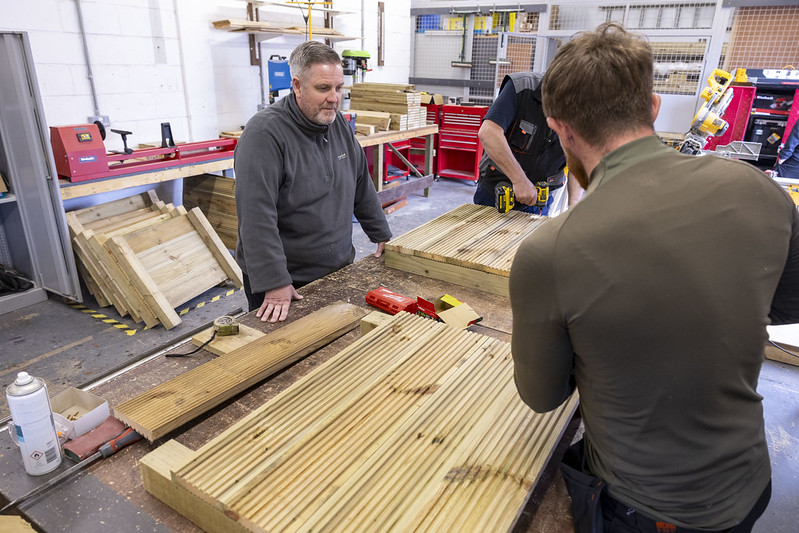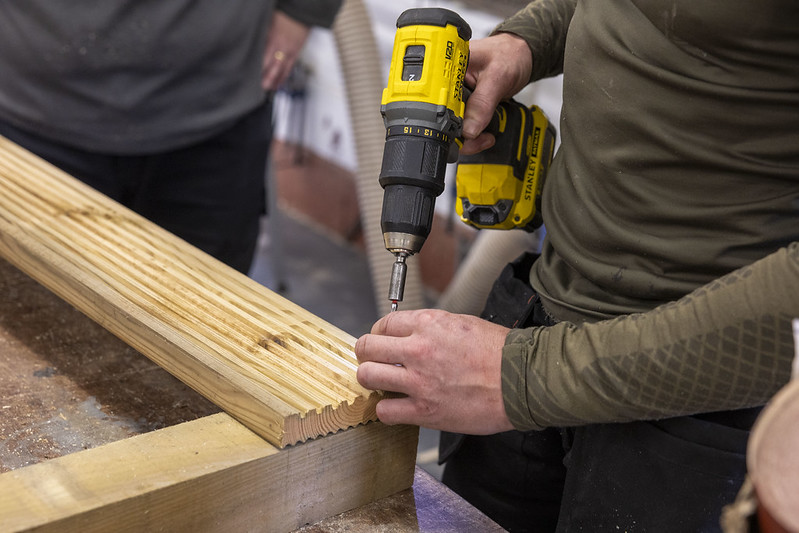Wooden planters made by people serving community sentences have been donated to schools and community groups across Renfrewshire.
People carrying out unpaid work as part of a community payback order (CPO) give back to local communities as part of the sentence.
Renfrewshire Council’s unpaid work team based in Paisley’s Greenlaw Industrial Estate, monitor community sentences and provide activities that benefit the community. People undertaking CPOs can experience new activities and learn new skills. This includes gardening and woodwork, where they build planters, benches and birdboxes for the wider community to enjoy.
Across Scotland more than 11.6 million hours of unpaid work have been completed since CPOs were introduced in 2010. During 2023-24 around 1.4 million hours were completed that benefitted local communities and 15,086 CPOs were imposed by the courts – a three per cent increase on the previous year.
There are various projects highlighted in the new annual CPO report 2023-24 by Community Justice Scotland. It highlights an increasing number of CPOs imposed, how people have been held to account by courts and how these sentences helped them contribute to the communities they live in.
In Renfrewshire, one person who had completed unpaid work as part of a CPO said: “It made me realise that actions have consequences,” while another said, “It provided daily structure in my life and interaction with people.”
John Trainer, Head of Children and Justice Services at Renfrewshire Council, said: “Unpaid work is a significant community-based sentence that places considerable demands and expectations on the person subject to it. It also provides an opportunity for people who have been convicted to pay back to their own community in tangible ways and for themselves, access wider supports that can assist in reducing further offending.

Photo: People carrying out unpaid work as part of a community payback order learn woodwork skills at Greenlaw Industrial Estate, Paisley, with a supervisor
Photo Credit: Community Justice Scotland
“This work involves reparative activities and physical contributions that benefit our communities long after an order has been completed. It also offers the person a practical opportunity to learn to work with others and be part of making positive improvements in local areas where people work, live and play. This can help foster a sense of pride and for them to feel more part of the communities they’re helping.”
Catherine Dyer, chair of the board of Community Justice Scotland, said: “Community Payback Orders allow people to repay locally for the harm they’ve caused and access support to services, such as addiction counselling, to tackle the behaviour which led to their offending.
“The increase in the number of CPOs imposed by courts shows the confidence of Sheriffs in community-based sentences which can help reduce the risk of reoffending compared to short-term imprisonment. Unpaid work has transformed areas across the country, making a meaningful impact on communities such as improving school playgrounds, painting and gardening for local organisations as well as helping individuals who need work done.”

